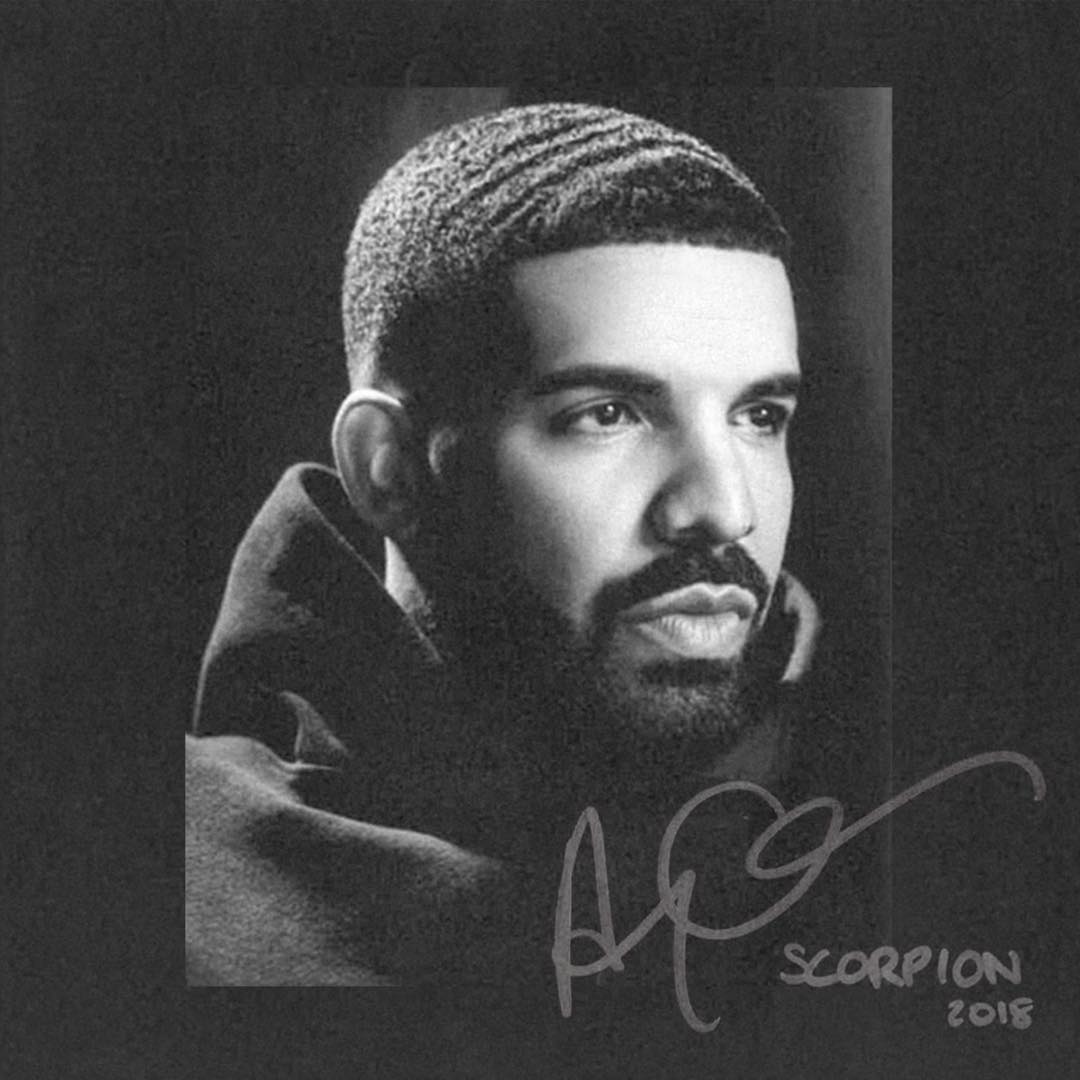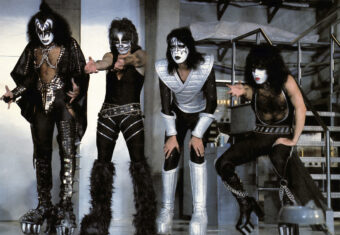More Life, Drake’s last release, was billed not as an album or a mixtape but a “playlist,” a nebulous designation that served in part to distance it from the bloated pomp of his dead-on-arrival fourth album Views. With Scorpion, he’s not just back in album mode, but double-album mode, serving 25 tracks and 90 minutes of alternating swagger, sex, and self-pity. Given the bleary late-night atmosphere and his ongoing fascination with Caribbean culture, he could have called it Collie Weed and the Infinite Sadness.
But Scorpion is every bit the product of the streaming era that More Life was, old-fashioned format notwithstanding. Like many interminable marquee releases over the last two years or so, its length is a byproduct of a change in Billboard’s chart-calculating rules, which now count streaming plays of individual songs toward album sales, encouraging artists and labels to pack their records with as many streamable songs as possible to help shoot them up the charts. (A trend that began, incidentally, around the time of Views, and reached a delirious recent apex with Migos’s 106-minute Culture II.) Even devoted Drake fans might not listen to the whole thing through more than once, other than as a twisted form of self-abnegation. It’s the length of Dr. Strangelove, of a strong runner completing a half marathon, of Views if you added another song as long as “Freebird.” Scorpion is not a playlist, then, but fodder for building your own, destined for chopping up and adding songs to mixes with names like “Summer Vibes.” On the morning of its release, Spotify included a photo of Drake on every single one of the 12 branded playlists on its homepage.
Fortunately, there’s enough decent music here to also pare Scorpion itself down to a more reasonable duration. One possible truncated version goes like this: end the first disc with the bouncy but menacing “Mob Ties,” possibly the year’s best Young Thug song despite not actually featuring Young Thug. Start the second disc with “That’s How You Feel,” with a Nicki Minaj sample like the piped-in voice of God, which kicks off a strong run of slick noirish tunes, punctuated appropriately by a monologue from a quiet storm radio DJ. The long middle stretch you end up skipping contains a half-baked Jay-Z collaboration with an ill-advised shoutout to the late XXXTentacion, several syrupy sing-songs that drift uncomfortably close to Post Malone parody, and, to be fair, the undeniable ebullience of “Nice for What.” Swap that single in for its petulant counterpart “I’m Upset,” and voila: a solid hour of Drake music, eminently listenable if not entirely surprising.
Drake’s personal baggage has always informed his music, and he’s never had more than he does now: a Pusha T beef that was the only real threat to his credibility he’s ever had, the apparent revelation that he is the father of a child. Message board sleuths will surely find plenty of subliminal shots at Pusha, but there’s nothing explicit. There is plenty of talk of fatherhood, however. It starts with “Emotionless,” a song so rife with references to the last year of Drake’s life and career that it’s nearly impossible to judge on its own merits. In moments like these, Scorpion belongs in the lineage of recent would-be blockbusters from Drake’s peers Kanye West and Jay-Z and Beyoncé, placing the performance of narrative on equal footing with the performance of music. These records are captivating not in the traditional manner of rap or pop music, but of prestige cable drama, relying on your knowledge of several seasons worth of plot points and dropped hints to propel their most emotionally charged moments. When Drake raps “I wasn’t hiding my kid from the world, I was hiding the world from my kid,” it carries real poignancy, but it’s hard to know how you’d receive it if you hadn’t been following along with all the diss tracks and TMZ posts. You’d need a “previously on Westworld”-style highlight reel intro just to keep up.

Also Read
KEEPING IT REAL — ROUND TWO!
Scorpion is stronger when Drake stops narrating the circumstances of his own life and simply writes more of the breezy, cocksure songs that seem to come so effortlessly to him. On “Blue Tint,” with an unbilled Future appearance, he rhymes a line about the “president doin’ us in” with another about the color of the windows in his luxury car. For any other artist, this sort of glibness would be hard to forgive; Drake’s superpower is that he can make it sound charming.
He even manages to experiment a little. “Nonstop” has the mumbling intensity of a rapper a decade Drake’s junior. “Peak,” one of the aforementioned Post-y tracks, is almost saved by the presence of a glowing synth sound that cuts through the mix like a lightsaber. But the force of Drake’s personality, his sheer overpowering Drakeness, is his greatest limit as well as his greatest asset. No matter the setting or the flow, he’ll always sound like Drake in a new costume.
Because of that, your opinion of Drake has probably settled at this point in his career, and nothing on Scorpion will change it. The only truly new perspective here is on the album-closing pair of tracks, “Final Fantasy” and “March 14.” The first is an unabashedly sleazy ode to fucking like a porn star; the second is about the joys and struggles of being a single dad. (One follows the other, after all.) Taken together, they paint a complex picture of where Drake’s at now, one that’s funny, tender, and not always particularly flattering. These tracks succeed because they approach relationships and fatherhood as subjects for actual songwriting, rather than two more bullet points in the list of reasons why no one will ever understand or be like Drake. Getting to them can feel like a slog. But if you’re smart, you’ll just add them to a playlist.




